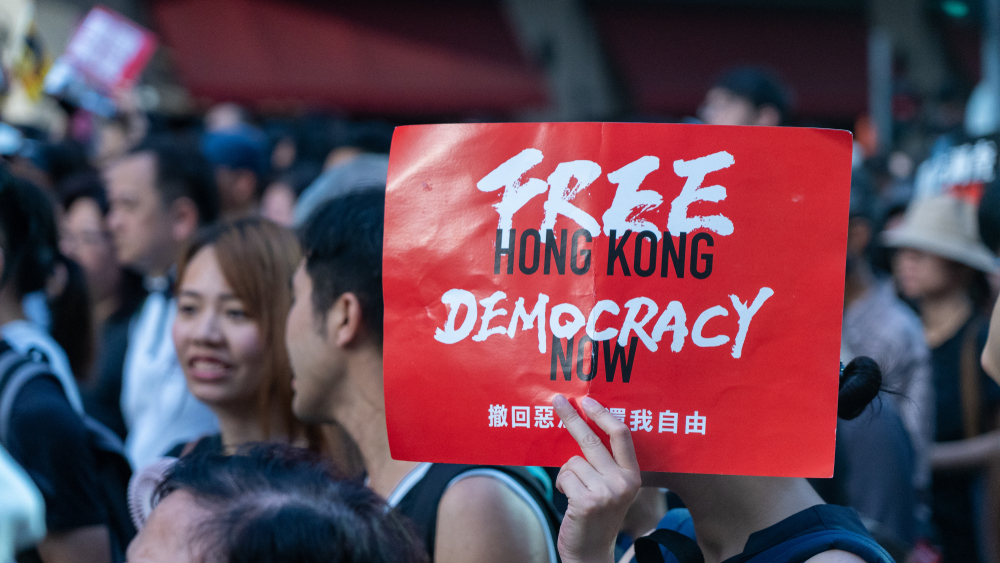GGR Issue Briefings / Working Papers
China–Georgia Relations: A New Move on the Chessboard?
AbstractOn January 14, 2024, a high-level delegation from Georgia’s ruling party visited China to bolster ties related to the Middle Corridor Initiative, connecting China and Europe. Georgia support this initiative due to obstacles in the northern route via Russia caused by the Russia-Ukraine conflict. China has been active in Georgia through investments and participation in the Belt and Road Initiative. The visit follows a Strategic Partnership Statement signed in 2023, marking a significant milestone. However, the specifics of the partnership remain vague, and Georgia's foreign policy priorities primarily focus on relations with Russia and Western allies. The statement aims to deepen political, economic, and cultural ties, but its practical outcomes are uncertain. Consideration of other regional players like Russia, the United States, and Turkey is crucial, given their historical interests in the Caucasus region. Georgia's pivot towards China represents a shift in its foreign policy approach, but its impact on bilateral relations remains uncertain amidst the complex geopolitical dynamics of the Caucasus.
Analyzing Record China through the Structural Topic Model
AbstractThis paper uses text data from Record China to analyze which discourses its operators try to spread. Through the analysis, it is found that although the site has the name Record China, many of the articles are related to the negative aspects of Japan-ROK (Republic of Korea) relations. Specifically, articles related to South Korea's criticism of Japan or South Korea’s behaviors over the comfort women issue and the Rising Sun Flag are observed. In addition, regarding China-related coverage, articles that emphasize China's influence in international cooperation and its economic and technological prowess are seen. This seems to be an attempt to show that China is on an equal footing with the U.S. or has even surpassed it. It can be said to be credible, since Maiko Ichihara (Hitotsubashi University) demonstrated the same thing in her past research using different methods and data. It is important to emphasize, however, that this article is limited in the strength of its evidence because the analysis uses the articles of only a single media outlet over two years. For example, it is not clear whether the trends identified in the analysis are found only in Record China, or whether they are discourses that can be found in other Japanese-language media as well. Additional data can clarify this uncertainty in the future.
An Overview of Attribution in Cyberspace Influence Operations
AbstractWho is behind the influence operations that are extending the battlefield to social media, and what are their intentions? This paper outlines attribution in cyberspace influence operations and discusses ways to uncover it. As well as presenting concepts, analysis cycles, and models of attribution, the paper puts the models into practice in a campaign conducted just prior to the 2023 G7 Foreign Ministers Meeting. It also discusses the limitations of attribution using information sources closed to cyberspace in terms of estimating intent, obtaining data, and identifying true senders.
How Disinformation Erodes the World’s Largest Democracy
AbstractIndia, despite being the world’s largest democracy, is facing a significant disinformation crisis, with a surge in fake news reported during the early pandemic period. Recently, over half the population has been exposed to disinformation, amplified by the country’s vast internet user base. The proliferation of fake news is significantly driven by right-wing influencers, supported by the ruling Bharatiya Janata Party (BJP), who use digital platforms to spread divisive narratives and target political opponents. This has not only heightened domestic tensions, especially hatred against the religious minorities, but also undermined democracy in India. Despite certain countermeasures by fact-checkers and the government, the challenge of combating disinformation in India remains formidable.
Fragmented Voices: The Struggle for Democracy in Hong Kong and Abroad
AbstractThe situation in Hong Kong has worsened with increasing repressive actions by the local authority against activists, extending beyond local borders to target Hong Kongers abroad. This crackdown represents a significant erosion of freedoms and democratic values, as evidenced by arrests of activists and supporters, and the extended enforcement of laws overseas. The dire state of affairs is reflected in Hong Kong’s declining rankings in global indices for press freedom and democracy, alongside a notable rise in emigration. However, as time progresses, the Hong Kong diaspora is experiencing a transformation in its identity shaped by each individual’s personal journey in the new surroundings, with a shifting sense of community as well as divergence in responses to the situation back home. This challenge highlights broader themes of political repression, migration, identity, and the enduring quest for freedom and democracy.
Humanitarian Assistance to Myanmar: Assessing Aid Delivery in Conflict Zones
AbstractWhile the need to measure the effectiveness of humanitarian assistance in Myanmar has been widely recognized, reliable and practical research methods long remained unavailable. A recent study by Humanitarian Outcomes (HO), based on a remote questionnaire, succeeds in providing a range of insights into how humanitarian aid is delivered at the local level across the country. The survey results show that while official aid programs by international organizations are severely restricted, informal and grassroots efforts are widespread and effective across large sections of Myanmar.
Spanish General Election 2023: The Retreat of Populism, Including the Far Right, and Its Lessons for Liberal Democracies Around the World
AbstractThis paper provides a briefing on the Spanish general election held on July 23, 2023, focusing specifically on the result of the Congress of Deputies vote as well as the situation both before and after the election, and examines the implications of the results for the country and abroad. The general situation is that no party was able to win a majority of 176 seats in the 350-seat Congress of Deputies, and whether the outcome is a coalition government or a single ruling party seeking support from outside the Cabinet, inter-party talks are essential. As for future scenarios, the probability of a second term for the leftist coalition of the pre-election ruling party is seen as somewhat high, but the possibility of a second general election due to the failure of inter-party talks cannot be ruled out. One feature of the election results is the retreat of populist parties on the left and, especially, on the right. After the Lehman Shock, Spanish politics, like in other Western or advanced countries, exhibited a similar pattern of polarization, albeit with variations in degree and issues. This was concurrent with the rise of populist political parties. However, in the recent general election, it may have been possible to discern a “polarization fatigue” among the electorate. In addition, the timing of the snap general election held shortly after the far-right's emergence in local parliamentary elections could serve as a practical example for liberal democracies around the world to address polarization and the rise of the far right.
The Current State of Democracy in Mexico as Seen in Attempts to Reform the Electoral System
AbstractThe López Obrador administration in Mexico embarked on a major electoral reform effort from 2022 to 2023, amending electoral laws significantly. The reforms included provisions related to the election to electoral positions by voters, a reduction in the number of personnel involved in electoral affairs, limitations on types of violations related to electoral campaigning, and a reduction in penalties for electoral violations. All of these changes were seen as posing a threat to the fundamental principles of democracy, specifically the "fairness and impartiality" of elections. However, in May and June of 2023, the Supreme Court of the Justice of the Nation declared the reforms invalid through constitutional review. This ruling demonstrated the judiciary's role in curbing arbitrary exercise of power, indicating that the separation of powers in Mexico is currently functioning.
Bridging Realities: How Perceptions of Refugees Are Influenced by VR Interactions
AbstractDoes virtual reality (VR) possess beneficial qualities as opposed to traditional media? This study examines the effects of viewing a documentary about refugees as an empathy – inducing stimulus and compares the strength of the effects based on the medium used: VR versus a computer screen. An experiment conducted as part of this research could not find evidence that VR is more effective at eliciting empathy for “imagine-other” perspective-taking tasks. On the other hand, the type of perspective-taking itself may be a significant factor. The discussion section synthesizes the experimental results with a critique of VR experiences in international relations contexts from a critical culture studies perspective and highlights how VR experiences are shaped and limited by the power structures within which they are produced.
Geopolitical Challenges of Chinese Smart Cities
AbstractSmart cities are geopolitical battlegrounds composed of technologies in which the U.S. and China are competing for supremacy. Chinese smart cities are governance systems that prioritize safety, whereas those of American companies are business systems that advocate improving quality of life, optimizing urban functions, and reducing operating costs. Chinese smart city projects are often integrated with economic and informatization support, and are deeply tied to China economically and politically. Authoritarian countries and weakened democracies are seeking Chinese smart cities as political instability increases, and the number of these cities is growing as a result of this increase. There are 144 such projects underway worldwide, and the vast amount of data and networks accumulated could give China a strategic advantage. Smart cities have become geopolitical battlegrounds for supremacy, but the West has been outnumbered.










